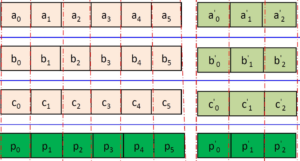
Cloudera Hit with $240 Million Judgement Over Erasure Coding

A jury in a Texas federal court last week awarded StreamScale $240 million in a patent infringement lawsuit it filed against Cloudera over erasure coding technology. Cloudera says it intends to appeal the decision.
StreamScale sued Cloudera and Cloudera customers ADP, Experian, Wargaming (Austin), and Intel in March 2021 in US District Court for the Western District of Texas over alleged infringement on its patents for erasure coding, which is a form of data protection technology similar to RAID that’s often used in distributed storage systems. StreamScale said the erasure coding in the Cloudera Distribution of Hadoop (CDH) version 6.x infringed on its patents.
Following the March 2021 filing, Intel accused StreamScale in a Northern California federal court of breaching a 2014 nondisclosure agreement (NDA) over negotiations related to the use of StreamScale’s technology. Intel said the NDA allowed it to have “frank conversations” and “good-faith assessments” of StreamScale’s patent, without risk of litigation down the road. StreamScale alleged that Intel used its technology in its Intelligent Storage Acceleration Library (ISA-L), which was implemented as part of Cloudera’s platform. Both companies dropped their respective lawsuits against each other last year.
StreamScale proceeded with its case against Cloudera, which eventually led to a jury trial that concluded on Friday, October 13. The jury agreed with StreamScale that Cloudera had infringed on three of its patents relating to erasure coding technology, and dismissed Cloudera’s argument that the erasure coding in CDH worked in a different way, making the patent claim invalid. The jury awarded StreamScale $240 million in damages.

Erasure coding is likened to an advanced form of RAID (image courtesy Nanyang Technological University)
Cloudera shared the following statement with Datanami:
“We disagree with and are extremely disappointed by the decision. We remain steadfast in our belief in our defenses in the case, and we intend to challenge the judgment. Today’s decision does not impact Cloudera customers and we will continue to provide them with the trusted data management and data analytics solutions they have come to expect from us.”
StreamScale is a Waco, Texas company founded by inventor Michael Anderson to license his NumaRAID technology. According to the company’s website, StreamScale’s storage technology has been licensed by a range of device manufacturers, including Rorke Data, MTI Film, Deluxe Digital Media, and Key Code Media. Aeon Computing and Penguin Computing have also licensed its NumaRAID technology for the HPC market. A typical license for NumaRAID goes for $2,500 per node with a 10% yearly fee, according to StreamScale’s website.
In 2011, Anderson adapted NumaRAID to accelerate the erasure coding process. He and StreamScale received 17 patents from the US Patent and Trademark Office over the years related to erasure coding, which you can see here. StreamScale claimed Cloudera violated six of its patents, and the jury agreed that three were in fact violated at trial.
Related Items:
How Erasure Coding Changes Hadoop Storage Economics
Cloudera: Over 25 Million Terabytes Served
The Key Tech Enabling Cloudera’s New Lakehouse


























